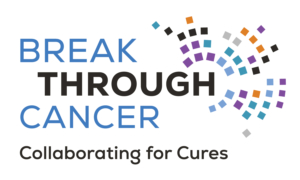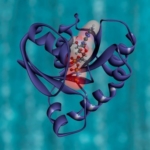Novel TeamLab Focuses on Conquering KRAS in Pancreatic Cancer

Mutated KRAS* genes are found in 90% of pancreatic cancers. Researchers believe targeting KRAS offers the best opportunity to revolutionize treatment and drastically improve patient outcomes. And while scientists have achieved some success in altering the gene, the effects typically are short-lived because KRAS quickly adapts to new drug therapies, eliminating their efficacy. The Lustgarten Foundation has awarded a $5 million grant to Break Through Cancer (BTC) to target KRAS in pancreatic cancer.
“We consider KRAS a critical driver of pancreatic cancer because of its very frequent mutation in the disease,” said Tyler Jacks, PhD, President, Break Through Cancer, Director, Lustgarten Foundation Pancreatic Cancer Laboratory at MIT, and David H. Koch Professor of Biology at MIT. “In normal situations, KRAS acts like the accelerator in a car, allowing cells to divide when they should. However, in cancer, including pancreatic cancer, the gene gets stuck in the ‘on’ position. It’s like pressing the car's accelerator to the floor and having it not respond when you take your foot off the pedal.”
The Lustgarten-funded Conquering KRAS in Pancreatic Cancer Team will integrate clinical and laboratory approaches to understand why patients do or do not respond to the new therapies using breakthrough single-cell technologies to deeply investigate tumor biology. The team also will develop pharmaceutical partnerships to accelerate the translation of new KRAS inhibitors into effective drugs for pancreatic cancer.
“Lustgarten-funded research has been a driving force in every major advancement in pancreatic cancer research, including KRAS discoveries,” said Linda Tantawi, Lustgarten CEO. “Our funding model encourages creativity and collaboration across our funded labs, which includes Dr. Jacks at MIT, as well as our teams at Johns Hopkins and Dana Farber, so it made perfect sense to support Break Through Cancer’s efforts to expand that collaboration even further.”

Added Jacks, “With many promising new KRAS-targeting therapies either now available or on the horizon, the field may be on the cusp of a revolution in treatment for patients with pancreatic cancer.”
Break Through Cancer was created in 2021 to tackle some of the most challenging cancers, including pancreas, through a novel collaborative approach. Each TeamLab is designed to accelerate the pace of discovery by breaking down silos and bringing together researchers, academic institutions and physicians to share systems, data, technology and other resources. Break Through Cancer partner institutions include Dana-Farber Cancer Institute, Sidney Kimmel Comprehensive Cancer Center at Johns Hopkins, Memorial Sloan Kettering Cancer Center, Koch Institute for Integrative Cancer Research at MIT, and The University of Texas MD Anderson Cancer Center.
“Our research is more impactful when we bring in collaborators to help rapidly determine if we're on the right path,” said David Tuveson, MD, PhD, Chief Scientist of the Lustgarten Foundation, Director of the Cold Spring Harbor Laboratory Cancer Center, and Immediate Past-President of the American Association for Cancer Research (AACR). “We all share the goal of wanting our science to make a difference in our patients. The only way that will happen is through open communication, diligent and persistent pursuit of the original objective, fearlessly carrying out the work, and talking to the field and the community.”
As the world’s largest private-funder of pancreatic cancer research, the Lustgarten Foundation pioneered collaborative research through its Lustgarten Advancing Breakthrough Science—or LABS—Program. Scientists at each of the Lustgarten Labs frequently collaborate, sharing new capabilities and specialized information to further all pancreatic cancer research. Through the LABS program, Lustgarten currently funds six labs strategically aligned to leverage the most renowned researchers at world-class cancer research institutions including Cold Spring Harbor Laboratory (NY), two at Johns Hopkins (MD), Salk Institute (CA), Dana-Farber and MIT (MA). Three of the institutions also are partnering with Break Through Cancer.
*KRAS: a gene that can mutate into a cancer accelerator and allow the growth of some cancers. This is not an inherited mutation (passed on from a parent), which would be in every cell in the body from birth. It is a spontaneous mutation that starts in a single cell which then grows and multiplies. Source: cancer.org

